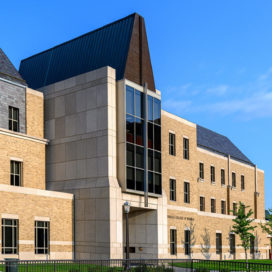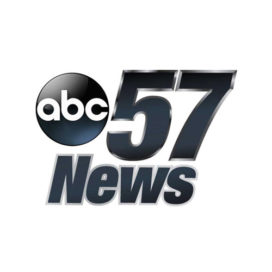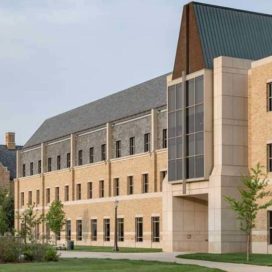NHL teams woo fans with different plans
Published: August 18, 2005 / Author: David SanLuisObispo.com
A free autographed puck to one fan every time Dallas scores at home. A Luc Robitaille-signed jersey to season-ticket holders in Los Angeles. Dollar hot dogs in Nashville. A barbecue with the Bruins in Boston. Five-hundred free tickets to each of 15 Tuesday night games in Montreal.
Sacre bleu!
NHL teams are romancing their fans. Hey, Tampa Bay’s season-ticket holders even get a re-engagement ring — a replica of the one Lightning players earned for winning the 2004 Stanley Cup.
It’s all part of each team’s marketing effort after the first work stoppage in history to wipe out an entire pro sports season. Each franchise devised its own strategy, and most started with a rollback in ticket prices.
The Sharks are among the teams that lowered prices, an average of 10 percent for season tickets and 6.5 percent for single games. But beyond that, they’ve been relatively quiet while other teams have announced a host of giveaways, gimmicks and special events.
“Some teams may make more of a quick splash,” said Malcolm Bordelon, the Sharks’ executive vice president of business operations. “Our preference is to spread it throughout the year.”
Still, it won’t be business as usual on opening night.
Traditionally the final home game each season is Fan Appreciation Night, with players giving away their game-worn jerseys. This season, Bordelon said, the Oct. 12 home opener against Columbus will have that same designation, with players handing over game-used sticks instead.
Other things are in the works. The Sept. 18 exhibition home opener, for example, is turning into a rare hockey doubleheader between the Sharks and Los Angeles; teams have enough players in training camp at that point to fill two lineups, so there will be games at 2 and 5 p.m.
Much of what lies ahead, Bordelon added, will put selected fans in closer contact with players — who now, under the new collective bargaining agreement, are economic partners with the owners and benefit directly from increased revenue.
All of it is designed to fill as many of HP Pavilion’s 17,496 seats as possible. The Sharks’ season-ticket renewal rate did climb to 90 percent of the 11,000 they had in 2003-04, Bordelon said. But because that was an all-time low, the team has more 10-game packs and single-game tickets to sell than in the past.
The NHL is in uncharted territory when it comes to persuading fans to reconnect with a sport that many found they could live without over the past 14 months.
A league-wide marketing campaign kicks off next month, NHL vice president for communications Bernadette Mansur said, and much of it will involve online interaction. Until then, each team decides for itself how to win back fans.
“Each club knows what the hot buttons are in their market,” Mansur said. Across-the-board price cuts, for example, “aren’t realistic when some clubs have suffered more than others under the past CBA. They know what it’s going to take for them to compensate for that over a period of time and how far they could push it.”
Reducing ticket prices — a move that targets families and casual fans, Mansur said — may sound like a logical place to start. But one sports economist said it may not have as much impact as owners hope.
“In terms of sports ticket sales,” said Richard Sheehan, a finance professor at Notre Dame, “price elasticity tends to be fairly low. At one level, you can jack prices up a lot and you don’t have sales go down a lot. The converse is, when you cut ticket prices a lot, you don’t get a big increase in sales.”
Much is at stake: Despite all the economic changes in the new collective bargaining agreement, the league still relies more on gate receipts and less on TV revenue than any other pro sport. It can’t afford to bungle things.
“It’s paramount that they get people back in the building to remind them how good the sport is,” said Paul Swangard, managing director of the University of Oregon’s sports marketing center.
That, he said, won’t be easy.
“It’s not about bringing the loyal fans back. They’re probably at the doors now,” Swangard said. “It’s the casual fans that will make the difference between teams being profitable and not being profitable.”
One thing in the NHL’s favor, he added, is that unlike the baseball lockout of 1994, most hockey fans understood the owners’ point “that the system was out of whack.”
Even so, fans now want something back from the game. And that’s where the marketing departments have to be careful.
“At this point fans are saying, `Show me that my loyalty means something to you.’ But it’s a double-edged sword,” Swangard said. Touchy-feely ad campaigns with an apologetic tone are a bad idea.
“The marketing needs to reinforce what the fans want to believe has changed because of the lockout,” he said. “It’s a new age for hockey? Well, prove it.”
For Jim Boone, co-founder of the NHL Fans Association, it’s all about being substantial.
“Fans are super-educated today and when players are throwing a 24 percent rollback on the table right off the bat and fans are only offered 5 or 7 percent off ticket prices, that’s a bit tough to swallow,” Boone said. “I don’t think teams are going far enough.”
Boone’s online organization grew by 23 percent to 28,025 members during the lockout, when it became a sounding board for fan perspective.
“What I’m waiting for,” he continued, “is something on a macro level from the NHL, something that will be a significant gesture to the fans that says I’m sorry and this is what we’re going to do for you.”
/news_and_events/news_articles/article/3725/nhl-teams-woo-fans-with-different-plans




